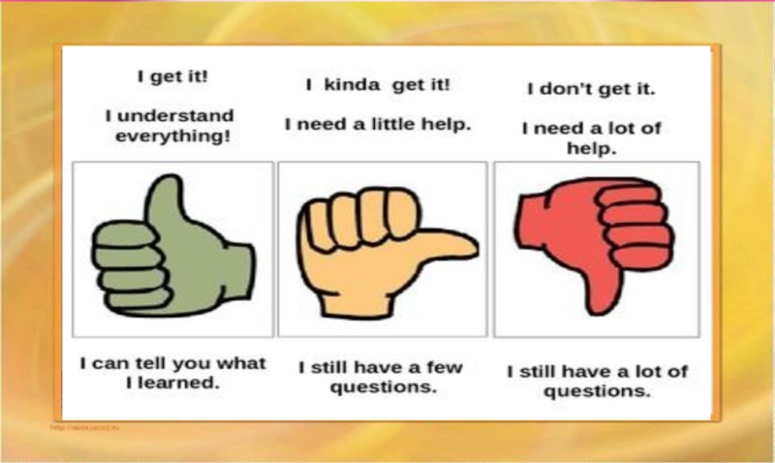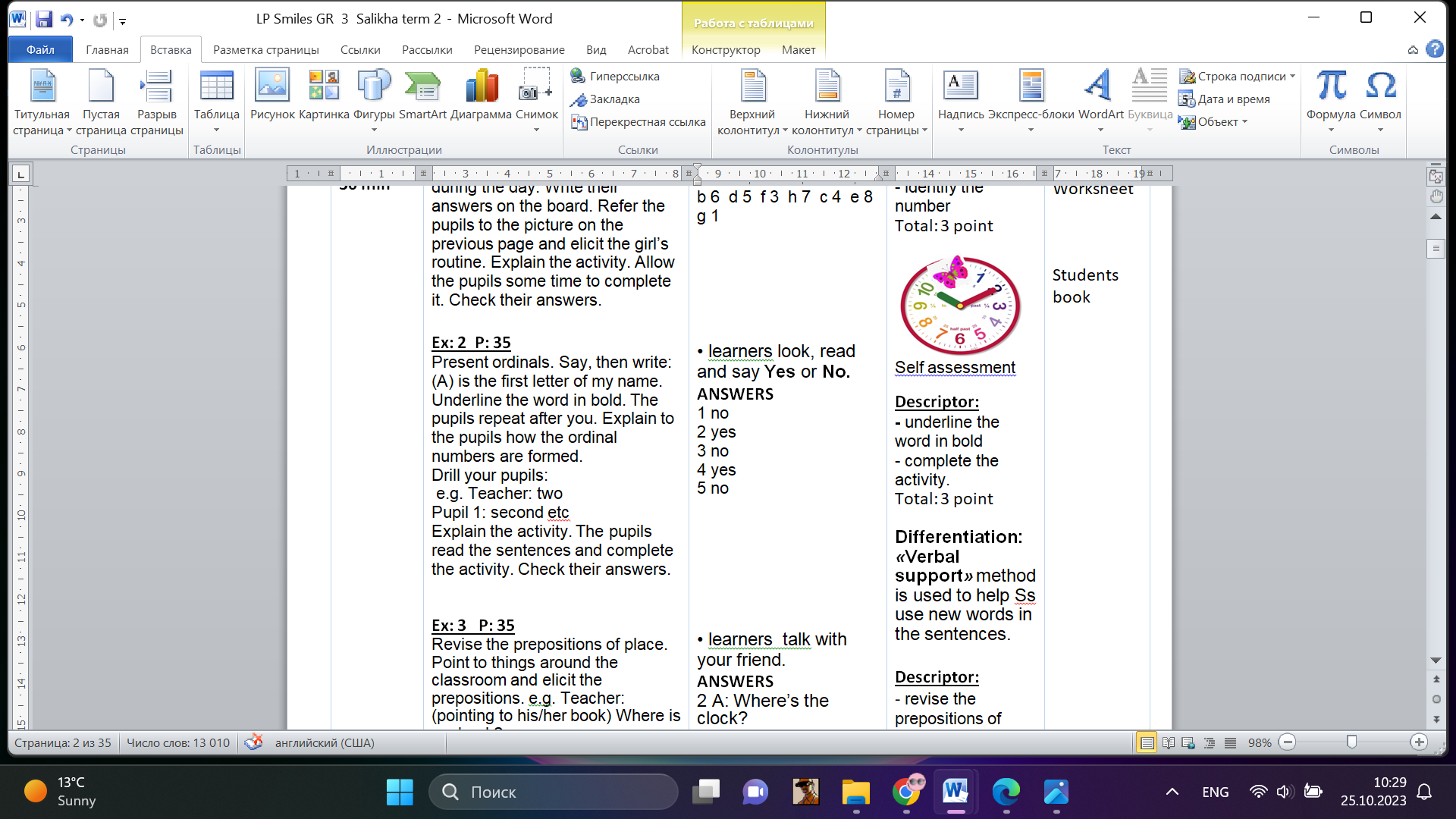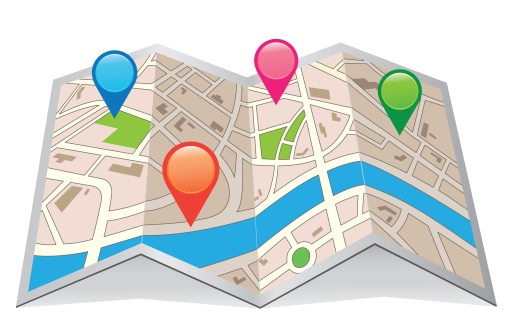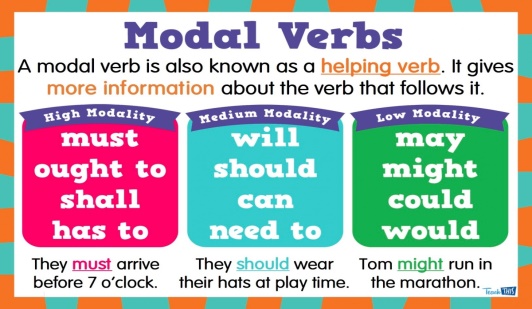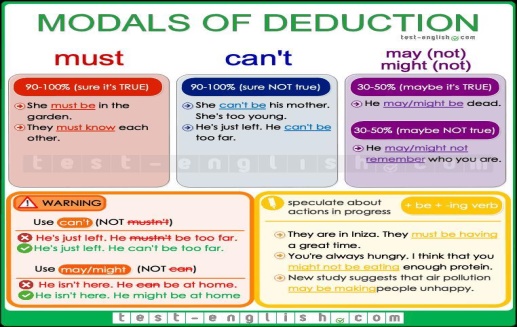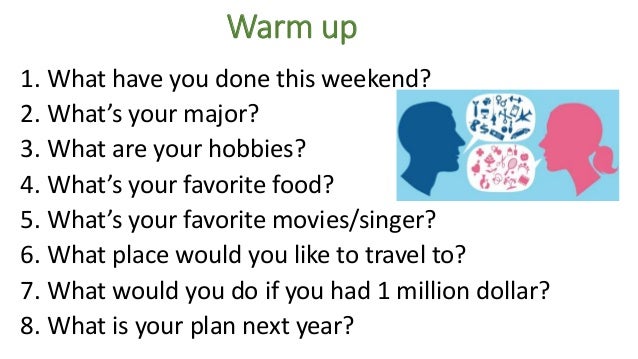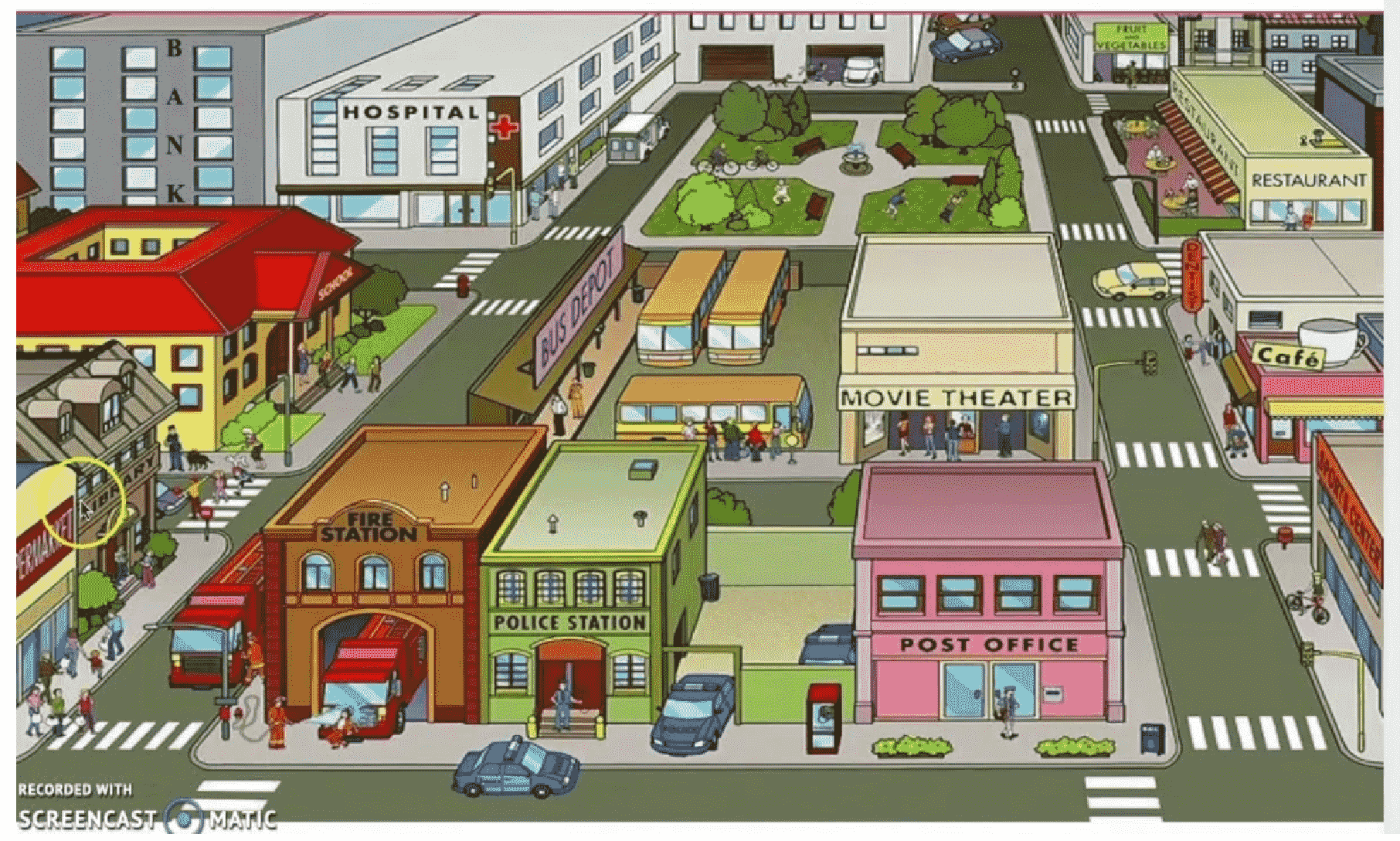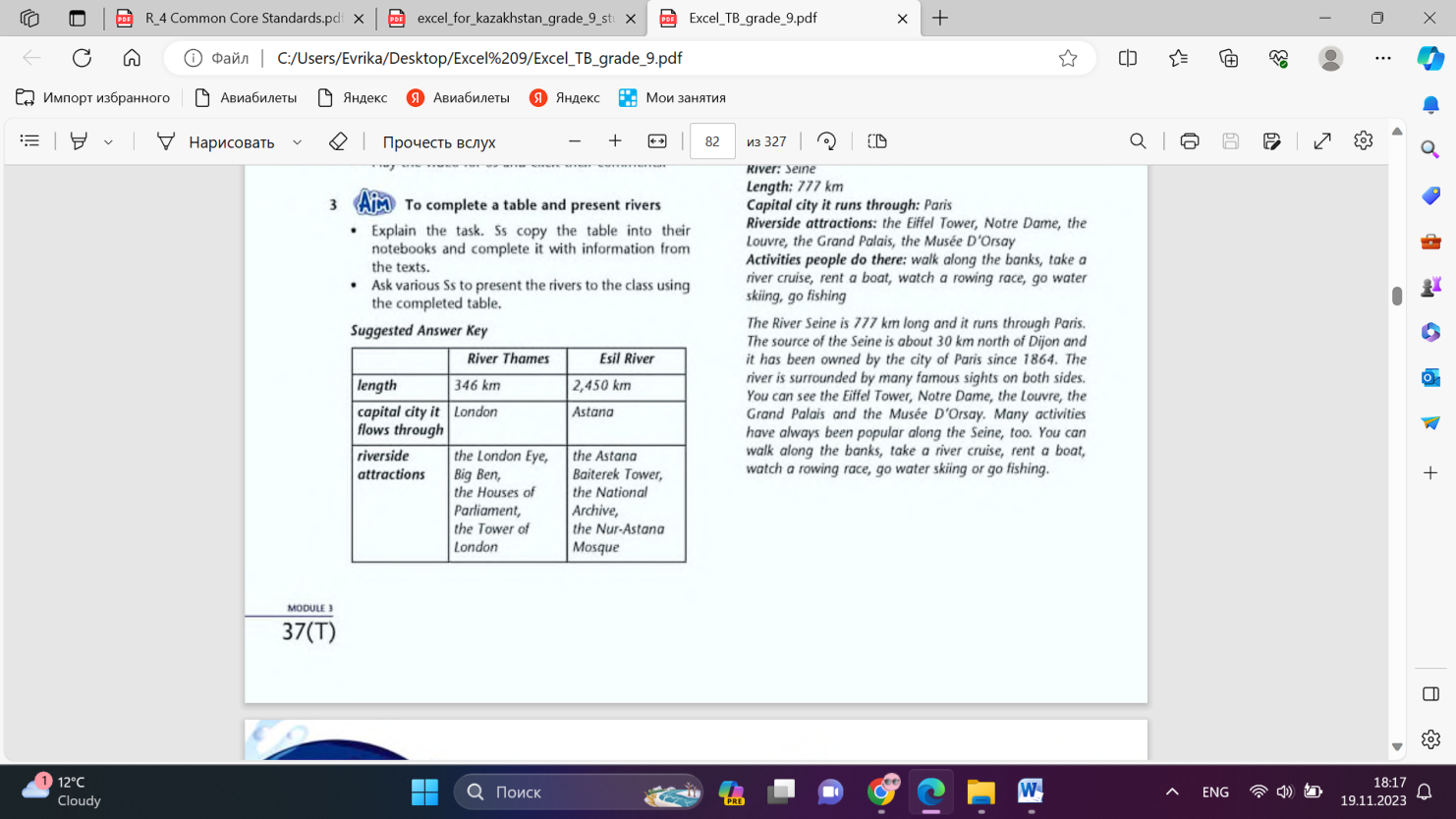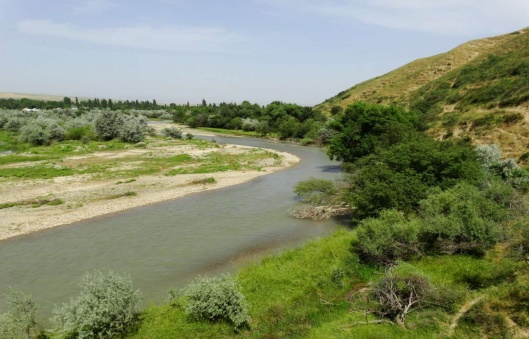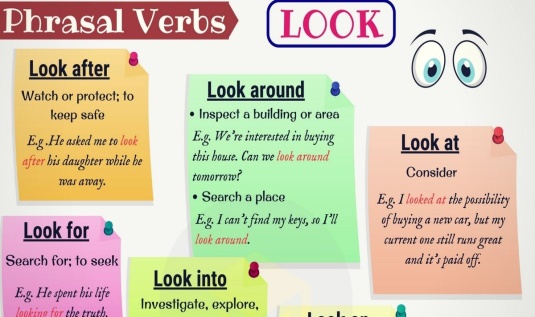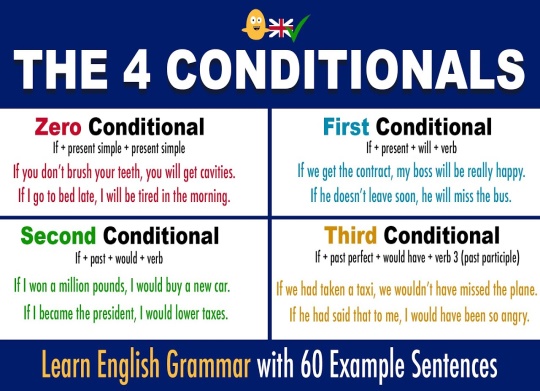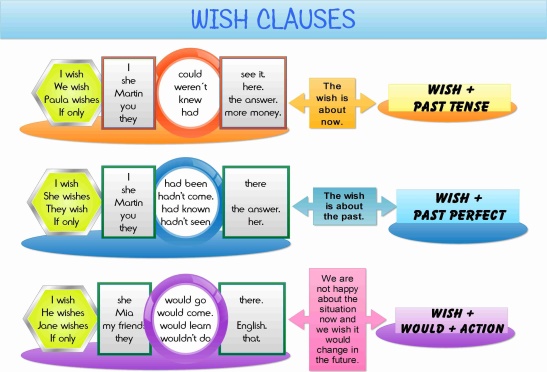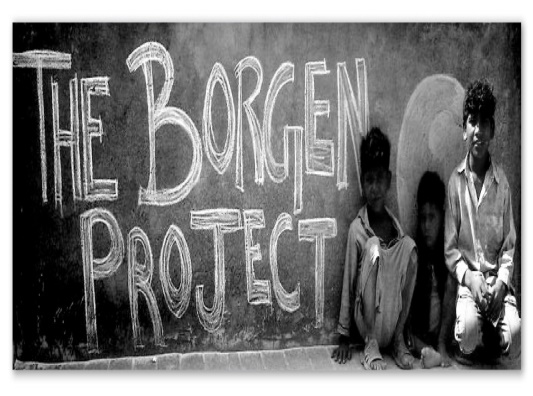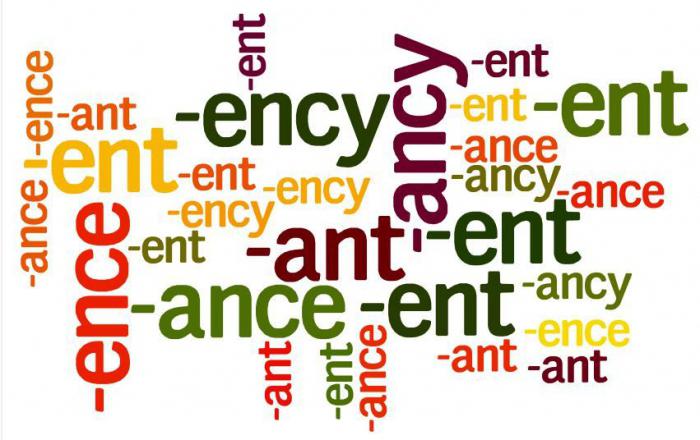
Назар аударыңыз. Бұл материалды сайт қолданушысы жариялаған. Егер материал сіздің авторлық құқығыңызды бұзса, осында жазыңыз. Біз ең жылдам уақытта материалды сайттан өшіреміз
Жақын арада сайт әкімшілігі сізбен хабарласады
қысқа мерзімді сабақ жоспарларын

Excel-9 қмж 2-тоқсан жинағы
Сатылымнан түскен қаражат авторға автоматты түрде аударылады. Толығырақ
беріледі

Дипломдар мен сертификаттарды алып үлгеріңіз!


Материалдың толық нұсқасын
жүктеп алып көруге болады
Short term plan: term 2
|
Unit: 3 Our planet |
Lesson 25 |
||
|
Teacher name: |
|
||
|
Date: |
|
||
|
Grade: 9 |
Number present: |
absent: |
|
|
Lesson title |
Vocabulary: city life – country life |
||
|
Learning objectives |
9.2.2.1 understand most specific information in unsupported extended talk on a wide range of general and curricular topics 9.3.5.1 interact with peers to negotiate, agree and organise priorities and plans for completing classroom tasks 9.6.13.1 use a variety of modal forms for different functions and a limited number of past modal forms including should/ shouldn’t have to express regret and criticism on range of familiar general and curricular topics |
||
|
Lesson objectives |
Learners will be able to: - present vocabulary related to city life/ country life - practise new vocabulary - identify compound nouns |
||
|
Value links |
Family – Family values are moral and ethical principles of typical family life, including sacrificing for loved ones, putting your loved ones first, and keeping your loved ones at the centre of your thoughts and actions. |
||
|
Plan |
|||
|
Stages / Time |
Teachers actions |
Students actions |
Assessment criteria |
Resources |
|
Beginning of the lesson Warming-up
3 min. Pre-learning «Brainstorming» method 7 min. |
Organization moment : 1.Greeting. Ask about the weather. The teacher sets the lesson objectives, letting students know what to anticipate from the lesson. Warming up Where are you from? How old are you? What color is it? How many students are there in class? What day of the week today? Lead – In
What are differences between city and country? |
The aim: To develop pupils speaking skills and create friendly atmosphere Efficiency: By wishing each other they feel better and feel the support of others Students of the class are listed. Students' attention is drawn to the lesson. Students say different words from the picture •Learners remember previous lesson vocabulary •Learners answer the questions |
The teacher to assess learners for their ability. “Good job! Well done!” Formative Assessment
Good job! Descriptor: - remembers the lesson passed Point 1 Assessment criteria make basic statements related to personal information, people and objects |
Pictures worksheet Picture |
|
Middle of the lesson Presentation part. 30 min |
Ex:1 P:29 • Play the recording. Ss listen and repeat chorally or individually. Elicit the L1 equivalents. Ex: 2 P: 29 • Draw Ss' attention to the pictures (A-F) and elicit what they show. Ex: 3 P: 29 • Elicit the compound nouns from Ex. 1 from Ss around the clas Ex: 4 P: 29 Ask various Ss around the class to use the words given to describe the places where they live. Conclusion during the lesson some tasks differentiated by outcomes of the students and by their abilities. |
• Learners listen and repeat. Answer the question. ANSWERS Students own answer • Learners answer the question. ANSWERS C harbour A factory B skyscraper D field E path F shopping mall • Learners use compound nouns. Use them to make sentences ANSWERS car park, shopping mall, department store • Learners use the words above to describe the place where you live ANSWERS I live in a city. There are skyscrapers, car parks and shops, but there aren't any fields, woods or farms. I live in a town. There are shops, squares, parks and blocks of flats, but there aren't any factories or skyscrapers. I live in the country. There are fields, woods and a river, but there aren't any shopping malls or skyscrapers. |
Descriptor: - listen and repeat. - answer the question T
Self assessment Differentiation: «Verbal support» method is used to help Ss use new words in the sentences. Descriptor: - use compound nouns - use them to make sentences Total: 3 point Descriptor: - use the words above to describe the place where you live Total: 3 point -Make CCQ questions Yes / No |
Card Worksheet Students book |
|
End of the lesson 5 min |
FEEDBACK Learners provide feedback on what they have learned at the lesson. Ex: P: Home task: Write the days |
|
Poster Success
|
|
Short term plan: term 2
|
Unit 3 Our planet |
Lesson 26 |
||
|
Teacher name: |
|
||
|
Date: |
|
||
|
Grade: 9 |
Number present: |
absent: |
|
|
Lesson title |
Reading: Silk through Sauran |
||
|
Learning objectives |
9.3.7.1 use appropriate subject-specific vocabulary and syntax to talk about a wide increased range of general and curricular topics 9.4.1.1 understand the main points in extended texts on a range of unfamiliar general and curricular topics |
||
|
Lesson objectives |
Learners will be able to: - introduce the topic and stimulate interest in the text - read for specific information - consolidate information in a text |
||
|
Value links |
Loyalty – Loyalty might be a core personal value to you if you highly prize friends that are reliable and trustworthy. You might put your friends or chosen family first, always being there for them when they need you. |
||
|
Plan |
|||
|
Stages / Time |
Teachers actions |
Students actions |
Assessment criteria |
Resources |
|
Beginning of the lesson Warming-up
3 min Pre-learning «Brainstorming» method 7 min. |
Organization moment : 1.Greeting. Ask about the weather. The teacher sets the lesson objectives, letting students know what to anticipate from the lesson. Warming up Where are you from? How old are you? What color is it? How many students are there in class? What day of the week today? Ask a few pupils to stand up and stand in a row. Ask the rest of the class questions to revise the ordinals. Lead – In
What do you know about The Great Silk Road? |
The aim: To develop pupils speaking skills and create friendly atmosphere Efficiency: By wishing each other they feel better and feel the support of others Students of the class are listed. Students' attention is drawn to the lesson. Determines the topic and purpose of the lesson •Learners remember previous lesson vocabulary Students say different words from the picture Answer the question. |
The teacher to assess learners for their ability. “Good job! Well done!” Formative Assessment
Good job! Descriptor: - know daily routines vocabulary - know prepositions of place Point 1 Assessment criteria - Learners have met the learning objectives if they can talk about numbers and location; |
Pictures worksheet Student’s book |
|
Middle of the lesson Presentation part. 30 min |
Ex:1 P:30 • Direct Ss' attention to the pictures, the title of the text and the words/phrases in the list. • Elicit/Explain the meaning of any unknown vocabulary and then elicit a variety of answers as to what they tell us about the place. • Play the recording. Ss listen and follow the text in their books and find out. Ex: 2 P: 31 • Allow Ss some time to read the text again and mark the statements. Check Ss' answers and elicit the corrections for the false statements. Ex: 3 P: 31 • Give 5s time to use the phrases in Ex. 1 to write sentences about Sauran, Elicit sentences from Ss around the class. Ex: 4 P: 31 • Explain the task and allow Ss three minutes to prepare their answers. Ss share their answer with their partners. Ask some pairs to report back to the class. |
• Pupils look at the picture and read the title and the key words. ANSWERS The text is about the ancient city of Sauran which was on the Silk Road, an old trade route from ancient times. • Pupils read the text again and mark the statements. ANSWERS 1 F It was a network of routes. 2 F It was once the biggest city. 3 F The city has been partly excavated. 4 T 5T • Pupils use the phrases to write sentences about Sauran. ANSWERS ... It was a cosmopolitan centre of trade. It had high city walls and a network of underground canals so it's likely the inhabitants were quite advanced. Sauran survived attack and siege but it was slowly abandoned as traders increasingly used sea routes instead of the Silk Road. |
Descriptor: - look at the picture - read the title and the key words. Total: 2 point pupils are evaluated by collecting fish
Descriptor: - read the text again - mark the statements Total: 1 point Descriptor: use the phrases to write sentences about Sauran. Total: 2 point
Self assessment -Make CCQ questions Yes / No Total: 10 point |
Card Worksheet Students book |
|
End of the lesson 5 min |
FEEDBACK Learners provide feedback on what they have learned at the lesson. Ex: P: Home task: Write the days |
|
Poster Success
|
|
Short term plan: term 2
|
Unit 3 Our planet |
Lesson 27 |
||
|
Teacher name: |
|
||
|
Date: |
|
||
|
Grade: 9 |
Number present: |
absent: |
|
|
Lesson title |
Vocabulary: locations |
||
|
Learning objectives |
9.3.7.1 use appropriate subject-specific vocabulary and syntax to talk about a wide increased range of general and curricular topics 9.6.10.1 use present continuous forms and past continuous, including a growing variety of passive forms, on a range of familiar general and curricular topics |
||
|
Lesson objectives |
Learners will be able to: - present and practise compass points - talk about the place you live - complete a paragraph about the place you live |
||
|
Value links |
Fairness – If you value fairness, you might be highly sensitive to situations at school or in the workplace where a teacher or a peer has exhibited favoritism or allowed someone to get away with living by a different set of rules to everyone else. |
||
|
Plan |
|||
|
Stages / Time |
Teachers actions |
Students actions |
Assessment criteria |
Resources |
|
Beginning of the lesson Warming-up
3 min Pre-learning «Brainstorming» method 7 min. |
Organization moment : 1.Greeting. Ask about the weather. The teacher sets the lesson objectives, letting students know what to anticipate from the lesson. Warming up Where are you from? How old are you? What color is it? How many students are there in class? What day of the week today? revise the vocabulary from the previous Lead – In
what the drivers use in order to find a place position? |
. The aim: To develop pupils speaking skills and create friendly atmosphere Efficiency: By wishing each other they feel better and feel the support of others Students of the class are listed. Students' attention is drawn to the lesson. • Learners remember previous lesson vocabulary Determines the topic and purpose of the lesson Students say different words from the picture |
The teacher to assess learners for their ability. “Good job! Well done!” Formative Assessment
Good job! Descriptor: - can tell the time Point 1 Assessment criteria - Learners have met the learning objectives if they can talk about persons character |
Pictures worksheet Picture |
|
Middle of the lesson Presentation part. 30 min |
Ex: 4 P: 31 • Go through the list of words with Ss and elicit/explain their meanings. Ss complete the task. • Check Ss' answers by asking various Ss to read the completed texts aloud. Ex:5 P: 31 • Ask 5s to read the theory and then give them time to complete the task. • Check Ss' answers around the class. Ex: 6 P: 31 • Explain the task and elicit the L1 equivalents. If there is a map in the classroom, use it to explain the compass points. Ss make sentences. Ask various Ss around the class to read out their sentences. Suggested Answer Key Ex: 7 P: 31 • Explain the task. Ss complete the task. Check Ss' answers around the class. Ex: 8 P: 31 • Explain the task and tell Ss they can use their answers from Ex. 7 to help them complete the task. Allow 5s some time to complete the paragraph and then check Ss' answers by asking various Ss to read their paragraphs to the class Conclusion during the lesson some tasks differentiated by outcomes of the students and by their abilities. |
•Pupils fill in the correct word from the list. ANSWERS A 1 coast 2 population 3 public 4 airport B 1 Located 2 industrial 3 famous 4 nightlife 5 cosmopolitan C 1 seaside 2 beach 3 attractions 4 destination 5 peaceful 6 clean •Pupils read the theory. Then, choose the correct adjective. ANSWERS 1 bored 2 fascinating 3 surprised 4 shocked 5 confusing 6 interesting. •Pupils say these words in your language. ANSWERS Astana is in the north of Kazakhstan. Semey is in the east of Kazakhstan. Almaty is in the south-east of Kazakhstan. Kyzylorda is in the south of Kazakhstan. Leninsk is in the south-west of Kazakhstan Atyrau is in the west of Kazakhstan. Uralsk is in the north-west of Kazakhstan •Pupils ask your partner questions about the place he/she lives in. ANSWERS A: Where do you live? B: I live in Astana. A: Where is Astana located? B: It is in the north of Kazakhstan. A: What can someone do there? B: It has a lot of attractions and shops you can visit. A: What is it like there? B: It is clean, safe and not very crowded. A: What is the nightlife like? 8: The nightlife is exciting with a lot of restaurants and |
Descriptor: - fill in the correct word from the list Total: 1 point
Descriptor: - read the theory - choose the correct adjective Total: 1 point Descriptor: - say these words in your language Total: 1 point Descriptor: - ask your partner questions about the place he/she lives Total: 1 point -Make CCQ questions Yes / No
pupils are evaluated by collecting pencils |
Card Worksheet |
|
End of the lesson 5 min |
FEEDBACK Learners provide feedback on what they have learned at the lesson. Ex: Home task: |
|
Poster Success |
|
Short term plan: term 2
|
Unit 3: Our planet |
Lesson 28 |
||
|
Teacher name: |
|
||
|
Date: |
|
||
|
Grade: 9 |
Number present: |
absent: |
|
|
Lesson title |
Use of English: modals |
||
|
Learning objectives |
9.1.7.1 develop and sustain a consistent argument when speaking or writing 9.2.2.1 understand most specific information in unsupported extended talk on a wide range of general and curricular topics 9.3.7.1 use appropriate subject-specific vocabulary and syntax to talk about a wide increased range of general and curricular topics |
||
|
Lesson objectives |
Learners will be able to: - revise modals, - practise modals - practise past modals |
||
|
Value links |
Honesty – You may highly value telling people the truth. This one gets tricky when being honest can be hurtful to others. So, a person who really puts honesty first might be the sort of person who will tell the truth even if it hurts to do so. |
||
|
Plan |
|||
|
Stages / Time |
Teachers actions |
Students actions |
Assessment criteria |
Resources |
|
Beginning of the lesson Warming-up
3 min Pre-learning «Brainstorming» method 7 min. |
Organization moment : 1.Greeting. Ask about the weather. The teacher sets the lesson objectives, letting students know what to anticipate from the lesson. Warming up Where are you from? How old are you? What color is it? How many students are there in class? What day of the week today? revise the language from the previous lesson Lead – In
|
The aim: To develop pupils speaking skills and create friendly atmosphere Efficiency: By wishing each other they feel better and feel the support of others Students of the class are listed. Students' attention is drawn to the lesson. • Learners talk about daily routines previous lesson vocabulary Determines the topic and purpose of the lesson Students say different words from the picture |
The teacher to assess learners for their ability. “Good job! Well done!” Formative Assessment
Good job! Descriptor: - talk about daily routines Point 1 Assessment criteria - Learners have met the learning objectives if they can talk about natural features |
Pictures worksheet Student’s book |
|
Middle of the lesson Presentation part. 30 min |
Ex:1 P:32 • sk Ss to read the sentences (1-12) and match the modals in bold to their uses (A-L). Read out the Note. Ex: 2 P: 32 • Give Ss time to complete the task. • Check 5s' answers. Ex: 3 P: 32 • Give Ss time to complete the sentences. Check Ss' answers around the class. . Conclusion during the lesson some tasks differentiated by outcomes of the students and by their abilities. |
•Pupils match the modals in bold to their meaning. ANSWERS 1C 2E 3A 4B 5I 6G 7H 8F 9I 10L 11K 12D •Pupils choose the correct item ANSWERS 1 have to 2 May 3 can't 4 should 5 might not 6 Can 7 could •Pupils fill in the gaps with the correct past modals. ANSWERS 1 had to 2 didn't have to 3 could 4 were able to |
Descriptor: - match the modals in bold Total: 2 point
Descriptor: - choose the correct item Total: 2 point
pupils are evaluated by collecting colour pencils Descriptor: - fill in the gaps with the correct past modals Total: 3 point -Make CCQ questions Yes / No Total: 10 point |
Card Worksheet Students book |
|
End of the lesson 5 min |
FEEDBACK Learners provide feedback on what they have learned at the lesson. Ex: Home task: |
|
Poster Success
|
|
Short term plan: term 2
|
Unit: 3 Our planet |
Lesson 29 |
||
|
Teacher name: |
|
||
|
Date: |
|
||
|
Grade:9 |
Number present: |
absent: |
|
|
Lesson title |
Use of English: modals of deductions |
||
|
Learning objectives |
9.3.5.1 interact with peers to negotiate, agree and organise priorities and plans for completing classroom tasks 9.5.3.1 write with moderate grammatical accuracy on a wide range of familiar general and curricular topics 9.6.17.1 use if only /wish [that] clauses [past reference]; use a variety of relative clauses including prepositions from where, to whom on a range of familiar general and curricular topics |
||
|
Lesson objectives |
Learners will be able to: - practise modals - practise modals of deduction |
||
|
Value links |
Generosity – This may be a core value of yours if you cherish people who will give their time and resources to people in need. You may consider yourself to be a generous person if you find joy and meaning in giving to others. |
||
|
Plan |
|||
|
Stages / Time |
Teachers actions |
Students actions |
Assessment criteria |
Resources |
|
Beginning of the lesson Warming-up
3 min Pre-learning «Brainstorming» method 7 min. |
Organization moment : 1.Greeting. Ask about the weather. The teacher sets the lesson objectives, letting students know what to anticipate from the lesson. Warming up Where are you from? How old are you? What color is it? How many students are there in class? What day of the week today? Revise the vocabulary from the previous lesson Lead – In
|
The aim: To develop pupils speaking skills and create friendly atmosphere Efficiency: By wishing each other they feel better and feel the support of others Students of the class are listed. Students' attention is drawn to the lesson. • Learners talk about days of the week previous lesson vocabulary Determines the topic and purpose of the lesson Students say different words from the picture |
The teacher to assess learners for their ability. “Good job! Well done!” Formative Assessment
Good job! Descriptor: - talk about days of the we Total: 1 point Assessment criteria - Learners have met the learning objectives if they can talk about your last I holidays. |
Pictures worksheet picture |
|
Middle of the lesson Presentation part. 30 min |
Ex:4 P:33 • Give Ss time to complete the task and then check their answers. Ex: 5 P: 33 • Explain the task and give Ss time to complete it. Check Ss' answers and elicit which sentences refer to the past. Ex: 6 P: 33 • Explain the task and give Ss time to read the text and complete it. Check Ss' answers around the class. Ex: 8 P: 33 • Give Ss time to complete the sentences with the modals provided and then check their answers around the class. Conclusion during the lesson some tasks differentiated by outcomes of the students and by their abilities. |
• Pupils rewrite the sentences using appropriate modals ANSWERS 1 mustn't/can't enter this area 2 should try the new Thai restaurant 3 might/may be open on Sundays 4 don't have to hire a car 5 can repair his car himself 6 have to show their passports at reception 7 can't/mustn't take photos here 8 had to show his ID to visit the excavation 9 should buy tickets in advance 10 didn't have to leave so early • Pupils complete the sentences with modals. ANSWERS 1 should 2 may 3 was able to 4 needn't 5 had to 6 couldn't • Pupils choose the correct modal verbs. ANSWERS 1 didn't need to 2 can 3 have to 4 can 5 might 6 should 7 can't 8 mustn't • Pupils fill the gaps with modals ANSWERS 1 must 2 might 3 can't 4 must 5 can't |
Descriptor: - rewrite the sentences using appropriate modals Total: 3 point Descriptor: - complete the sentences with modals Total: 2 point
Self assessment Descriptor: - choose the correct modal verbs Total: 2 point Descriptor: - choose the correct modal verbs Total: 2 point
pupils are evaluated by collecting fish
-Make CCQ questions Yes / No Total: 10 point |
Card Worksheet Vocabulary card |
|
End of the lesson 5 min |
FEEDBACK Learners provide feedback on what they have learned at the lesson. Ex: Home task: |
|
Poster Success
|
|
Short term plan: term 2
|
Unit 3 Our planet |
Lesson 30 |
||
|
Teacher name: |
|
||
|
Date: |
|
||
|
Grade: 9 |
Number present: |
absent: |
|
|
Lesson title |
Reading: What a strange place to live? |
||
|
Learning objectives |
9.2.6.1 deduce meaning from context in unsupported extended talk on a wide range of general and curricular topics 9.3.5.1 interact with peers to negotiate, agree and organise priorities and plans for completing classroom tasks |
||
|
Lesson objectives |
Learners will be able to: - introduce the topic and predict the content of a text - read for specific information - brainstorm for vocabulary |
||
|
Value links |
Generosity – This may be a core value of yours if you cherish people who will give their time and resources to people in need. You may consider yourself to be a generous person if you find joy and meaning in giving to others. |
||
|
Plan |
|||
|
Stages / Time |
Teachers actions |
Students actions |
Assessment criteria |
Resources |
|
Beginning of the lesson Warming-up
3 min Pre-learning «Brainstorming» method 7 min. |
Organization moment : 1.Greeting. Ask about the weather. The teacher sets the lesson objectives, letting students know what to anticipate from the lesson. Warming up Where are you from? How old are you? What color is it? How many students are there in class? What day of the week today? Revise the language of the previous lesson. Lead – In
|
The aim: To develop pupils speaking skills and create friendly atmosphere Efficiency: By wishing each other they feel better and feel the support of others Students of the class are listed. Students' attention is drawn to the lesson. Determines the topic and purpose of the lesson • Learners talk about favourite dayprevious lesson vocabulary Students say different words from the picture and count one to hundred |
The teacher to assess learners for their ability. “Good job! Well done!” Formative Assessment
Good job! Descriptor: - talk about favourite day Total: 1 point Assessment criteria - Learners have met the learning objectives if they can talk about a strange place to live |
Pictures worksheet Student’s book |
|
Middle of the lesson Presentation part. 30 min |
Ex:1 P:3 • Direct Ss' attention to the pictures, elicit a variety of answers to the question in the rubric from Ss around the class and write them on the board. • Play the recording. Ss listen and follow the text in their books and find out. Ex: 2 P: 34 • Allow 5s some time to read the text and answer the questions. Check Ss' answers. Ex: 3 P: 35 • Allow 5s some time to prepare their answers to the questions in the rubric and then elicit answers from various Ss around the class. Ex: 4 P: 35 • Go through the Study Skills box and explain that this tip will help Ss complete the task successfully. • Explain the task and write the headings on the board. Allow Ss some time to think of words to go under the headings and write the mind map in their notebooks. Ask various Ss to describe their homes to the class. Conclusion during the lesson some tasks differentiated by outcomes of the students and by their abilities. |
Pupils look at the pictures. Listen, read and to find out ANSWERS In the first picture, I can see a house in a tree. I think it would be interesting living up there. You would be able to see everything around you. In the second picture, I can see a house built into a rock. I think it would be nice living there. It would be cool in the summer and warm in the winter. Pupils read the text and answer the question ANSWERS 1 They are made of wood and have a thatched roof. 2 They climb up a long wooden pole. 3 Their houses are so high to protect the Korowai from floods, wild animals and mosquitoes and from other tribes breaking in at night. 4 They chat and tell stories. 5 They are in Göreme, Turkey. 6 They look like upside-down ice cream cones. 7 It is a strange landscape. Some people say it's like the surface of the moon. 8 Because they are cool in the hot summers and warm in the cold winters. Pupils write a short paragraph. Read it to your partner. ANSWERS I would like to stay in the fairy chimneys because I would like to see what it is like living inside houses made millions of years ago by nature./I would like to stay in the tree houses because I would like to see what it is like to live in a house 50 metres above the ground. These houses are very different to mine because my house is not made of rock or high in the air. I live in a flat on the first floor in a street with other blocks of flats. I don't have to worry about wild animals or the weather. Pupils write as many words as you can think of related to homes under of the headings below ANSWERS Students own answer |
Descriptor: - Listen, read and to find out Total: 2 point
Self assessment Descriptor: - read the text and answer the question Total: 3 point Descriptor: - write a short paragraph. Read it to your partner. Total: 3 point pupils are evaluated by collecting colour pencils
Descriptor: - write as many words as you can think of related to homes under of the headings below Total: 3 point -Make CCQ questions Yes / No Total: 10 point |
Card Worksheet Students book |
|
End of the lesson 5 min |
FEEDBACK Learners provide feedback on what they have learned at the lesson. Ex: Home task: |
|
Poster Success |
|
Short term plan Term 2
|
Unit 3 Our planet |
Lesson31 |
||
|
Teacher name: |
|
||
|
Date: |
|
||
|
Grade: 9 |
Number present: |
absent: |
|
|
Lesson title |
Listening: home |
||
|
Learning objectives |
9.3.7.1 Use appropriate subject-specific vocabulary and syntax to talk about a wide increased range of general and curricular topics. 9.4.1.1. Understand the main points in extended texts on a range of unfamiliar general and curricular topics. 9.5.2.1. Write independently about factual and imaginary past events,activities and experiences on a range of familiar general and curricular topics.. |
||
|
Lesson objectives |
Learners will be able to: - employ subjectspecific vocabulary and grammar in oral discourse - identify the theme based on elements of the text (in a case of narratives) - write a narrative text (e.g. a short story, an email to a friend) about past events, activities and experiences |
||
|
Value links |
Generosity – This may be a core value of yours if you cherish people who will give their time and resources to people in need. You may consider yourself to be a generous person if you find joy and meaning in giving to others. |
||
|
Plan |
|||
|
Stages / Time |
Teachers’ actions |
Students’ actions |
Assessment criteria |
Resources |
|
Beginning of the lesson Warming-up 3 min |
1.Greeting. Ask about the weather. The teacher sets the lesson objectives, letting students know what to anticipate from the lesson.
Lead – In
|
The wish flower” method helps to start the lesson with good wishes to each other. The aim: To develop Ss speaking skills and create friendly atmosphere Efficiency: By telling the wishes they show their appreciations . Students express their ideas Have you got a beautiful garden in your house ?
Good job! |
At the organization moment T tries to award active Ss. «The praise» method is used to evaluate Ss with phrases like: “Good job! Well done!”
|
Pictures PPT |
|
Middle of the lesson Presentation part. 37 min |
Ex:4 P:35 Go through the Study Skills box and explain that this tip will help Ss complete the task successfully. Explain the task and write the headings on the board. Allow Ss some time to think of words to go under the headings and write the mind map in their notebooks. Ask various Ss to describe their homes to the class. Ex: 5 P:35 • Isten for specific information • Play the recording. Ss listen and match the people to their homes. Check Ssanswers around the class. Differentiation: «Verbal support» method is used to help Students ue new words in the text. Ex: 5 P:35 • To listen for specific information • Play the recording again. • Elicit answers from Ss around the class. Ex: 6 P:35 To practise phrasal verbs with break Read out the box and then give 5s time to complete the task. • Check Ss' answers. Ex: 7 P:35 To practise prepositions Ask Ss to choose the correct prepositions and the check their answers in their dictionaries. Check Ss' answers around the class |
Students answer the question. Use the words to describe your home ANSWERS: material: brick, wood, concrete, mud type: house, cottage, villa, palace special features: balcony, garden, swimming pool, garage adjectives: comfortable, peaceful, spacious appliances: cooker, washing machine, dishwasher Students listen to the three teens talking about their homes. ANSWERS: A a cottage B a houseboat C a flat Students choose the correct particle. Make sentences using the other particle. ANSWERS: A Karen- a fireplace B Simon - a deck C Peter- a balcony Students choose the correct preposition. ANSWERS: 1 down 2 into 3 out |
Descriptor: - answer the question. - Use the words to describe Total: 3 point Assessment criteria: -Learn key phrases for writing an opinion essay. Descriptor: - listen to the three teens talking Total: 3 point Descriptor: - choose the correct particle - make sentences Total: 3 point Descriptor: - choose the correct preposition Total: 3 point -Make CCQ questions Yes / No |
Cards Student’s book Worksheets Student’s book |
|
End of the lesson 5 min |
Giving the hometask. Ex: 3 P:23 wb Self-reflection |
Peer-assessment. Two stars and a wish.
Maybe you could ... |
Students use their stickers to show their knowledge according to the lesson. |
Poster Success |
Short term plan Term 2
|
Unit 3 Our planet |
Lesson32 |
||
|
Teacher name: |
|
||
|
Date: |
|
||
|
Grade: 9 |
Number present: |
absent: |
|
|
Lesson title |
Everyday English: talking about places |
||
|
Learning objectives |
9.4.2.1. understand specific information and detail in texts on a range of familiar general and curricular topics. 9.6.12.1use an increased variety of comparative degree adverb structures with regular and irregular adverbs use a variety of pre-verbal and end-position adverbs. |
||
|
Lesson objectives |
Learners will be able to: - identify facts and details in paragraphs and extended texts - apply adverbs of attitude at the beginning or the end of a clause, or immediately before the verb or after a complement appropriately |
||
|
Value links |
Generosity – This may be a core value of yours if you cherish people who will give their time and resources to people in need. You may consider yourself to be a generous person if you find joy and meaning in giving to others. |
||
|
Plan |
|||
|
Stages / Time |
Teachers’ actions |
Students’ actions |
Assessment criteria |
Resources |
|
Beginning of the lesson Warming-up 3 min |
1.Greeting. Ask about the weather. W Lead – In
|
The wish flower” method helps to start the lesson with good wishes to each other. The aim: To develop Ss speaking skills and create friendly atmosphere Efficiency: By telling the wishes they show their appreciations . Students express their ideas
Good job! |
At the organization moment T tries to award active Ss. «The praise» method is used to evaluate Ss with phrases like: “Good job! Well done!”
|
Pictures PPT |
|
Middle of the lesson Presentation part. 37 min |
Ex:1 P:36 • Present situational language Play the recording for Ss to listen and repeat chorally or individually. Differentiation: «Verbal support» method is used to help Students use new words in the text. Ex: 2 P:36 • Predict the context of a dialogue and listen and read for specific information Direct Ss' attention to the sentences in Ex. 1 again. Elicit Ssguesses as to what the dialogue may be about. • Play the recording. Ss listen and follow the dialogue in their books and check if their guesses were correct. Ex: 3 P:36 • learn synonymous phrases and consolidate situational language through translation • Elicit the L1 equivalents for the sentences in Ex. from various Ss around the class. Ex: 4 P:36 Act out a dialogue Ask Ss to work in pairs and take roles and read out the dialogue. Monitor the activity around the class and ask some pairs to read out the dialogue in front of the class. |
Students listen and repeat ANSWERS: Students own answer. Students read the dialogue. Answer the question ANSWERS: The dialogue is about two friends talking about a holiday one of them had, Study say the sentences in Ex 1 in you language ANSWERS: I'd like to hear all about it. - Sa, tell me everything. I bet it is really nice there. It must be a lovely place. We enjoyed ourselves so much that we would like to go o holiday there again. - We had such a wonderful time tha we want to go again next year Students listen to the dialogue. Take roles and read it aloud. ANSWERS: : Hi, Maria. How was your holiday? You went to Turkey didn't you? B: No, we didn'tWe went to Greece and it was great thanks. A: So, tell me everything! Where did you stay? B: We stayed on a great little island called Santorini. A: That's in the Aegean, isn't it? B: Yes, it is. A: It must be a lovely place! B: It is. The weather was fantastic and it was a very scenic place where we could rea enjoy the beauty of nature. A: That's nice. |
Assessment criteria - listen and repeat Descriptor: - read the dialogue - answer the question Total: 3 point Assessment criteria: - say the sentences in you language Descriptor: - listen to the dialogue. - take roles and read it aloud. Total: 3 point -Make CCQ questions Yes / No |
Cards Student’s book Worksheets Student’s book |
|
End of the lesson 5 min |
Giving the hometask. Ex: 3 P:23 wb Self-reflection |
Peer-assessment. Two stars and a wish.
|
Students use their stickers to show their knowledge according to the lesson. |
Poster Success |
Short term plan Term 2
|
Unit 3 Our planet |
Lesson33 |
||
|
Teacher name: |
|
||
|
Date: |
|
||
|
Grade: 9 |
Number present: |
absent: |
|
|
Lesson title |
Across cultures: Rivers of the world |
||
|
Learning objectives |
9.1.9.1Use imagination to express thoughts, ideas, experiences and feelings. 9.4.2.1. understand specific information and detail in texts on a range of familiar general and cur 9.4.4.1 read a wide range of extended fiction and non-fiction texts on familiar and unfamiliar general and curricular topics ricular topics |
||
|
Lesson objectives |
Learners will be able to: - identify facts and details in paragraphs and extended texts - read authentic texts for pleasure and academic purposes |
||
|
Value links |
Integrity – Integrity is the quality of having strong moral principles. So, a person with integrity will always act with honesty and adhere to their own moral code regardless of what others do. |
||
|
Plan |
|||
|
Stages / Time |
Teachers’ actions |
Students’ actions |
Assessment criteria |
Resources |
|
Beginning of the lesson Warming-up 3 min |
1.Greeting. Ask about the weather.
Lead – In
|
The wish flower” method helps to start the lesson with good wishes to each other. The aim: To develop Ss speaking skills and create friendly atmosphere Efficiency: By telling the wishes they show their appreciations . Students express their ideas about ecological problem in their country. How many rivers are there in Kazakhstan? |
At the organization moment T tries to award active Ss. «The praise» method is used to evaluate Ss with phrases like: “Good job! Well done!”
Good job! |
Pictures PPT |
|
Middle of the lesson Presentation part. 37 min |
Ex:1 P:37 • Introduce the topic and listen and read for specific information Ask Ss to look at the pictures. Then elicit their guesses in answer to the questions. Play the recordingSs listen and follow the text in their books and find out. Differentiation: «Verbal support» method is used to help Students use new words in the text. Ex: 2 P:37 • Read for specific information (comprehension questions) Give Ss some time to read the text and answer the questions. Check Ss answers. Differentiation: «Verbal support» method is used to help Students ue new words in the text. Ex: 3 P:37 • Complete a table and present rivers • Explain the task. Ss copy the table into their notebooks and complete it with information from the texts. Ask various Ss to present the rivers to the class using the completed table |
Students look at the pictures. Answer the question. ANSWERS: The River Thames and the Esil River. The River Thames is in London and the Esil River is in AstanaThe Esil River is longer Students discuss the questions in pairs Students read the text again and answer the question. ANSWERS: 1 You can cross the River Thames by bridge a y cable car. 2 It begins in the Cotswold Hills and ends in the North Sea. 3 It freezes over. Student Discuss the questions about the situation in your town or city Students copy and complete the table. ANSWERS:
|
Descriptor: - look at the pictures. - anser the question Total: 3 point Assessment criteria: - Talk about the recycling situation in a town or city. Descriptor: - read the text - answer the question. Total: 3 point Descriptor: - copy and complete the table Total: 3 point -Make CCQ questions Yes / No |
Cards Student’s book Worksheets Student’s book |
|
End of the lesson 5 min |
Giving the hometask. Ex: 3 P:23 wb Self-reflection |
Peer-assessment. Two stars and a wish.
Maybe you could ... |
Students use their stickers to show their knowledge according to the lesson. |
Poster Success |
Short term plan: term 2
|
Unit: 3 Our planet |
Lesson 34 |
||
|
Teacher name: |
|
||
|
Date: |
|
||
|
Grade:9 |
Number present: |
absent: |
|
|
Lesson title |
Across the curriculum: Types of mountains Summative assessment for the unit «Earth and our place in it» |
||
|
Learning objectives |
9.1.9.1.Use imagination to express thoughts, ideas, experiences and feelings. 9.3.7.1 use appropriate subject-specific vocabulary and syntax to talk about a wide increased range of general and curricular topics. 9.2.8.1 begin to recognize inconsistencies in argument in extended talk on a growing range of general and curricular subjects |
||
|
Lesson objectives |
Learners will be able to: -employ subjectspecific vocabulary and grammar in oral discourse -identify majority of a discussion and dissimilarities in the ideas |
||
|
Value links |
Generosity – This may be a core value of yours if you cherish people who will give their time and resources to people in need. You may consider yourself to be a generous person if you find joy and meaning in giving to others. |
||
|
Plan |
|||
|
Stages / Time |
Teachers actions |
Students actions |
Assessment criteria |
Resources |
|
Beginning of the lesson Warming-up
3 min Pre-learning «Brainstorming» method 7 min. |
Organization moment : 1.Greeting. Ask about the weather. The teacher sets the lesson objectives, letting students know what to anticipate from the lesson. Warm-Up Dictation Game Pick five to fifteen sentences or words from a previous lesson and dictate them. The learners need to write them down with correct spelling. Revise the vocabulary from the previous lesson Lead – In
|
The aim: To develop pupils speaking skills and create friendly atmosphere Efficiency: By wishing each other they feel better and feel the support of others Students of the class are listed. Students' attention is drawn to the lesson. • Learners talk about days of the week previous lesson vocabulary Determines the topic and purpose of the lesson Students say different words from the picture |
The teacher to assess learners for their ability. “Good job! Well done!” Formative Assessment
Good job! Descriptor: - talk about days of the we Total: 1 point Assessment criteria - Learners have met the learning objectives if they can talk about types of mountains |
Pictures worksheet picture |
|
Middle of the lesson Presentation part. 30 min |
Ex:1 P:38 • Introduce the topic and talk about the importance of mountains • Initiate a discussion about why mountains are important and encourage a wide range of answers. • Make sure all the examples are covered. Elicit various answers from Ss around the class. Ex: 2 P: 38 • Read for cohesion and coherence • Give Ss time to read the text and think of a appropriate word to fill each gap in the text. • Then play the recording for Ss to listen and check their answer Ex: 3 P: 38 • Consolidate new vocabulary • Give Ss time to complete the phrases with the words in the list and then give them time to use them in sentences about different types of mountains. Elicit answers from Ss around the class. Summative assessment for the unit «Earth and our place in it» Conclusion during the lesson some tasks differentiated by outcomes of the students and by their abilities. |
• Pupils look at the pictures and answer the question. ANSWERS Mountains are important because they are the source of all fresh water. They are a natural barrier and offer protection from the weather and invasion. They are also home to many different types of animals and plants • Pupils read the text and complete the gaps with the correct missing words. ANSWERS 1 ever 2 up 3 when 4 each 5 of 6 both 7 like 8 from • Pupils fill the gaps. Use the phrases to make sentences about different types of mountains. ANSWERS 1 against 2 fold 3 fault 4 rock |
Descriptor: - look at the pictures - answer the question. Total: 3 point Descriptor: - read the text - complete the gaps Total: 2 point Descriptor: - fill the gaps Total: 2 point
pupils are evaluated by collecting fish
-Make CCQ questions Yes / No Total: 10 point |
Card Worksheet Vocabulary card |
|
End of the lesson 5 min |
FEEDBACK Learners provide feedback on what they have learned at the lesson. Ex: Home task: |
|
Poster Success
|
|
Short term plan: term 2
|
Unit: 3 Our planet |
Lesson 35 |
||
|
Teacher name: |
|
||
|
Date: |
|
||
|
Grade:9 |
Number present: |
absent: |
|
|
Lesson title |
Writing: An article about the place where you live. |
||
|
Learning objectives |
9.1.1.1 use speaking and listening skills to solve problems creatively and cooperatively in groups 9.4.1.1 understand the main points in extended texts on a range of unfamiliar general and curricular topics 9.5.1.1 plan, write, edit and proofread work at text level with little or no support on a range of general and curricular topics |
||
|
Lesson objectives |
Learners will be able to: - identify the theme based on elements of the text (in a case of narratives) - check their own and others’ writing to ensure that it communicates what they intended and improve the writing if needed |
||
|
Value links |
Generosity – This may be a core value of yours if you cherish people who will give their time and resources to people in need. You may consider yourself to be a generous person if you find joy and meaning in giving to others. |
||
|
Plan |
|||
|
Stages / Time |
Teachers actions |
Students actions |
Assessment criteria |
Resources |
|
Beginning of the lesson Warming-up
3 min Pre-learning «Brainstorming» method 7 min. |
Organization moment : 1.Greeting. Ask about the weather. The teacher sets the lesson objectives, letting students know what to anticipate from the lesson. Warm-Up Dictation Game Pick five to fifteen sentences or words from a previous lesson and dictate them. The learners need to write them down with correct spelling. Revise the vocabulary from the previous lesson Lead – In
|
The aim: To develop pupils speaking skills and create friendly atmosphere Efficiency: By wishing each other they feel better and feel the support of others Students of the class are listed. Students' attention is drawn to the lesson. • Learners talk about days of the week previous lesson vocabulary Determines the topic and purpose of the lesson Students say different words from the picture |
The teacher to assess learners for their ability. “Good job! Well done!” Formative Assessment
Good job! Descriptor: - talk about days of the we Total: 1 point Assessment criteria - Learners have met the learning objectives if they can talk about types of mountains |
Pictures worksheet picture |
|
Middle of the lesson Presentation part. 30 min |
Ex:1 P:39 • Explain the task and allow Ss some time to read the text and say what each paragraph is about. Ex: 2 P: 39 • Present and classify new vocabulary Explain the task. Write the headings Positive/ Negative on the board and then elicit which words/ phrases go under which headings from Ss around the class. Ask various Ss around the class to use some of them to describe their town/village Ex: 3 P: 39 • Complete an article Ss do the task. Check Ss' answers around the class. Conclusion during the lesson some tasks differentiated by outcomes of the students and by their abilities. |
• Pupils read the article and answer the question ANSWERS The first paragraph is about where they live and why. The second paragraph is about what it is like there. The third paragraph is about how they feel about ''ng there. • Pupils check these words /phrases in your dictionaries. ANSWERS Positive: excellent public transport system, fast pace of life, everything close at hand, good chance of getting a job, cheap shops, lots of restaurants and clubs, relaxed pace of life, safe, peaceful life, helpful neigours, clean air, beautiful views, never feel bored, hustle and bustle Negative: crowded, noisy streets, traffic noise, polluted, fast pace of life, unfriendly people, feel isolated, hustle • Pupils use phrases from ex 1 to complete the article ANSWERS 1 excellent public transport system 2 good chance of getting a job 3 everything close at hand 4 hustle and bustle/fast pace of life 5 polluted 6 traffic noise |
Descriptor: - read the article - answer the question. Total: 3 point Descriptor: - check these words /phrases Total: 2 point Descriptor: - Total: 2 point
pupils are evaluated by collecting fish
-Make CCQ questions Yes / No use phrases from ex 1 Total: 10 point |
Card Worksheet Vocabulary card |
|
End of the lesson 5 min |
FEEDBACK Learners provide feedback on what they have learned at the lesson. Ex: Home task |
|
Poster Success
|
|
Short term plan: term 2
|
Unit: 4 Charities and conflict |
Lesson 36 |
||
|
Teacher name: |
|
||
|
Date: |
|
||
|
Grade:9 |
Number present: |
absent: |
|
|
Lesson title |
Vocabulary: Social problems |
||
|
Learning objectives |
9.3.3.1 explain and justify their own point of view on a range of general and curricular topics 9.3.7.1 use appropriate subject-specific vocabulary and syntax to talk about a wide increased range of general and curricular topics |
||
|
Lesson objectives |
Learners will be able to: -employ subjectspecific vocabulary and grammar in oral discourse -produce a speech, expressing own ideas, giving reasons and specific details to support the argument |
||
|
Value links |
Generosity – This may be a core value of yours if you cherish people who will give their time and resources to people in need. You may consider yourself to be a generous person if you find joy and meaning in giving to others. |
||
|
Plan |
|||
|
Stages / Time |
Teachers actions |
Students actions |
Assessment criteria |
Resources |
|
Beginning of the lesson Warming-up
3 min Pre-learning «Brainstorming» method 7 min. |
Organization moment : 1.Greeting. Ask about the weather. The teacher sets the lesson objectives, letting students know what to anticipate from the lesson. Warm-Up Dictation Game Pick five to fifteen sentences or words from a previous lesson and dictate them. The learners need to write them down with correct spelling. Revise the vocabulary from the previous lesson Lead – In
|
The aim: To develop pupils speaking skills and create friendly atmosphere Efficiency: By wishing each other they feel better and feel the support of others Students of the class are listed. Students' attention is drawn to the lesson. • Learners talk about days of the week previous lesson vocabulary Determines the topic and purpose of the lesson Students say different words from the picture |
The teacher to assess learners for their ability. “Good job! Well done!” Formative Assessment
Good job! Descriptor: - talk about days of the we Total: 1 point Assessment criteria - Learners have met the learning objectives if they can talk about social problems |
Pictures worksheet picture |
|
Middle of the lesson Presentation part. 30 min |
Ex:1 P:41 • Introduce new vocabulary Play the recording. Ss listen and repeat chorally and/or individually. Pay attention to Ss' pronunciation and intonatio Ex: 2 P: 41 • Listen for specific information Explain the task. Play the recording. Ss listen and identify which social problem each person feels is the most serious. Ex: 3 P: 41 • Personalise the topic Elicit answers to the questions in the rubric from various Ss around the class. Conclusion during the lesson some tasks differentiated by outcomes of the students and by their abilities. |
• Pupils listen and repeat. ANSWERS Students own answer • Pupils listen to three people talking about the problems below ANSWERS Sophie - war Richard-famine Mary-homelessness • Pupils answer the question ANSWERS I think poverty and famine are the most serious problems because these are two basic needs. We need to make sure everyone has enough to eat and a decent place to live so that people will have better lives. |
Descriptor: - listen and repeat Total: 3 point Descriptor: - listen to three people talking about the problems below Total: 2 point Descriptor: - answer the question Total: 2 point
pupils are evaluated by collecting fish
-Make CCQ questions Yes / No Y Total: 10 point |
Card Worksheet Vocabulary card |
|
End of the lesson 5 min |
FEEDBACK Learners provide feedback on what they have learned at the lesson. Ex: Home task |
|
Poster Success
|
|
Short term plan: term 2
|
Unit: 4 Charities and conflict |
Lesson 37 |
||
|
Teacher name: |
|
||
|
Date: |
|
||
|
Grade:9 |
Number present: |
absent: |
|
|
Lesson title |
Reading: Going the extra mile to help |
||
|
Learning objectives |
9.3.3.1 explain and justify their own point of view on a range of general and curricular topics 9.3.7.1 use appropriate subject-specific vocabulary and syntax to talk about a wide increased range of general and curricular topics 9.4.2.1 understand specific information and detail in texts on a range of familiar general and curricular topics, including some extended texts |
||
|
Lesson objectives |
Learners will be able to: -employ subjectspecific vocabulary and grammar in oral discourse -produce a speech, expressing own ideas, giving reasons and specific details to support the argument |
||
|
Value links |
Generosity – This may be a core value of yours if you cherish people who will give their time and resources to people in need. You may consider yourself to be a generous person if you find joy and meaning in giving to others. |
||
|
Plan |
|||
|
Stages / Time |
Teachers actions |
Students actions |
Assessment criteria |
Resources |
|
Beginning of the lesson Warming-up
3 min Pre-learning «Brainstorming» method 7 min. |
Organization moment : 1.Greeting. Ask about the weather. The teacher sets the lesson objectives, letting students know what to anticipate from the lesson. Warm-Up Dictation Game Pick five to fifteen sentences or words from a previous lesson and dictate them. The learners need to write them down with correct spelling. Revise the vocabulary from the previous lesson Lead – In
|
The aim: To develop pupils speaking skills and create friendly atmosphere Efficiency: By wishing each other they feel better and feel the support of others Students of the class are listed. Students' attention is drawn to the lesson. • Learners talk about days of the week previous lesson vocabulary Determines the topic and purpose of the lesson Students say different words from the picture |
The teacher to assess learners for their ability. “Good job! Well done!” Formative Assessment
Good job! Descriptor: - talk about days of the we Total: 1 point Assessment criteria - Learners have met the learning objectives if they can talk about going the extra mile to help |
Pictures worksheet picture |
|
Middle of the lesson Presentation part. 30 min |
Ex:1 P:42 • Introduce the topic through a quotation Direct Ss' attention to the quote and explain/elicit the meaning of any unknown words. Then elicit what Ss think it means. • Predict the content of the text and listen and read for gist Direct Ss' attention to the picture and the title of the text. Elicit how the quote may be related to the text. Play the recording. Ss listen and follow the text in their books to find out. Ex: 2 P: 42 • Read for specific information (T/F) Ask Ss to read the questions 1-6 and give them tin to read the text again and mark the statements true or false. Check Ss' answers around the class. Ex: 3 P: 42 • Read for key information (matching headings) Go through the headings and explain/elicit the meaning of any unknown words. Then give 5s time to read the text again and match the headings to the entries. Check Ss' answers. Conclusion during the lesson some tasks differentiated by outcomes of the students and by their abilities. |
• Pupils read the quote. Answer the question ANSWERS Its message is for people to believe in themselves and feel confident enough to try new things • Pupils listen and read to find out. Answer the question. ANSWERS The quote is from Katie Spotz. The text is about how she rowed solo across the Atlantic and raised money and awareness for a charity and hopes that her achievement will encourage others. • Pupils read the text again and decide if the statements are true or false ANSWERS IF 2T 3 F 4 F 5 F 6 T • Pupils work in pairs. Answer the question ANSWERS Katie-1, Rowing for Water, 2, Girl Raises Record Amount for Charity Chris-4, Reaching the Sky for Others, S, Mountain Adventure Luke-3, Crossing the Channel for Charity |
Descriptor: - read the quote - answer the question Total: 3 point Descriptor: - listen and read to find out. - answer the question. Total: 2 point Descriptor: - read the text again - decide if the statements are true or false Total: 2 point
pupils are evaluated by collecting fish
-Make CCQ questions Yes / No Y Total: 10 point |
Card Worksheet Vocabulary card |
|
End of the lesson 5 min |
FEEDBACK Learners provide feedback on what they have learned at the lesson. Ex: Home task |
|
Poster Success
|
|
Short term plan: term 2
|
Unit: 4 Charities and conflict |
Lesson 38 |
||
|
Teacher name: |
|
||
|
Date: |
|
||
|
Grade:9 |
Number present: |
absent: |
|
|
Lesson title |
Phrasal verbs; look |
||
|
Learning objectives |
9.3.5.1 interact with peers to negotiate, agree and organise priorities and plans for completing classroom tasks 9.5.3.1 write with moderate grammatical accuracy on a wide range of familiar general and curricular topics 9.6.11.1 use an increased variety of reported speech forms for statements, questions and commands: including indirect and embedded questions with know, wonder on a range of familiar general and curricular topics |
||
|
Lesson objectives |
Learners will be able to: -employ subjectspecific vocabulary and grammar in oral discourse -produce a speech, expressing own ideas, giving reasons and specific details to support the argument |
||
|
Value links |
Generosity – This may be a core value of yours if you cherish people who will give their time and resources to people in need. You may consider yourself to be a generous person if you find joy and meaning in giving to others. |
||
|
Plan |
|||
|
Stages / Time |
Teachers actions |
Students actions |
Assessment criteria |
Resources |
|
Beginning of the lesson Warming-up
3 min Pre-learning «Brainstorming» method 7 min. |
Organization moment : 1.Greeting. Ask about the weather. The teacher sets the lesson objectives, letting students know what to anticipate from the lesson. Warm-Up Dictation Game Pick five to fifteen sentences or words from a previous lesson and dictate them. The learners need to write them down with correct spelling. Revise the vocabulary from the previous lesson Lead – In
|
The aim: To develop pupils speaking skills and create friendly atmosphere Efficiency: By wishing each other they feel better and feel the support of others Students of the class are listed. Students' attention is drawn to the lesson. • Learners talk about days of the week previous lesson vocabulary Determines the topic and purpose of the lesson Students say different words from the picture |
The teacher to assess learners for their ability. “Good job! Well done!” Formative Assessment
Good job! Descriptor: - talk about days of the we Total: 1 point Assessment criteria - Learners have met the learning objectives if they can talk about phrasal verbs |
Pictures worksheet picture |
|
Middle of the lesson Presentation part. 30 min |
Ex:4 P:43 • Explain the task and suggest present and past continuous forms that Ss can use to complete their narrations. Give Ss time to prepare their answers and then ask some Ss to tell the class. Ex: 5 P: 43 • Consolidate new vocabulary Give Ss time to complete the words to make phrases and then check Ss' answers. Then, give Ss time to use the phrases to make sentences based on the texts in Ex. 1. Ask various Ss to read their sentences to the class. Ex: 6 P: 43 • Consolidate new vocabulary Explain the task and give Ss time to complete using their dictionaries as necessary. Check Ss' answers. Ex: 7 P: 43 • Practise prepositional phrases Explain the task. Ss complete the task and check their answers in their dictionaries. Tell Ss to learn words with prepositions as this will help them use the language in a natural way. Ex: 8 P: 43 • practise phrasal verbs with look Read out the box and explain the task. Give Ss time to complete it. Check Ss' answers. Conclusion during the lesson some tasks differentiated by outcomes of the students and by their abilities. |
• Pupils narrate your experience to the TV viewers. Use present and past continuous. ANSWERS I wanted to swim the English Channel to raise money for charity and I managed to raise £7,885. It was very difficult, though. The water was very cold and while I was swimming, I got stung by a jellyfish. I had to keep swimming despite the pain of the sting. The wind was blowing and the sea was rough, but I made it in the end and I felt very proud of myself. • Pupils match the words. Then make sentences. ANSWERS 1 B 2 F 3 E 4 D 5 G 6 A 7 C • Pupils complete the sentences with the words. You can use your dictionary. ANSWERS 1 feats 2 ambition 3 determination 4 funds 5 poverty 6 inspiration • Pupils choose the correct preposition. ANSWERS 1 in 2 in 3 to, for 4 to • Pupils choose the correct particle. Make sentences using the other options. ANSWERS 1 into 2 up 3 after 4 for 5 out for |
Descriptor: - narrate your experience to the TV - use present and past continuous Total: 3 point Descriptor: - match the words - make sentences Total: 2 point Descriptor: - complete the sentences - use your dictionary. Total: 2 point
pupils are evaluated by collecting fish
-Make CCQ questions Yes / No Total: 10 point |
Card Worksheet Vocabulary card |
|
End of the lesson 5 min |
FEEDBACK Learners provide feedback on what they have learned at the lesson. Ex: Home task |
|
Poster Success
|
|
Short term plan: term 2
|
Unit: 4 Charities and conflict |
Lesson 39 |
||
|
Teacher name: |
|
||
|
Date: |
|
||
|
Grade:9 |
Number present: |
absent: |
|
|
Lesson title |
Use of English: conditionals |
||
|
Learning objectives |
9.2.8.1 begin to recognise inconsistencies in argument in extended talk on a growing range of general and curricular subjects 9.3.7.1 use appropriate subject-specific vocabulary and syntax to talk about a wide increased range of general and curricular topics |
||
|
Lesson objectives |
Learners will be able to: -evaluate claims, reasons and examples provided by speakers -produce a speech, expressing own ideas, giving reasons and specific details to support the argument |
||
|
Value links |
Generosity – This may be a core value of yours if you cherish people who will give their time and resources to people in need. You may consider yourself to be a generous person if you find joy and meaning in giving to others. |
||
|
Plan |
|||
|
Stages / Time |
Teachers actions |
Students actions |
Assessment criteria |
Resources |
|
Beginning of the lesson Warming-up
3 min Pre-learning «Brainstorming» method 7 min. |
Organization moment : 1.Greeting. Ask about the weather. The teacher sets the lesson objectives, letting students know what to anticipate from the lesson. Warm-Up Dictation Game Pick five to fifteen sentences or words from a previous lesson and dictate them. The learners need to write them down with correct spelling. Revise the vocabulary from the previous lesson Lead – In
|
The aim: To develop pupils speaking skills and create friendly atmosphere Efficiency: By wishing each other they feel better and feel the support of others Students of the class are listed. Students' attention is drawn to the lesson. • Learners talk about days of the week previous lesson vocabulary Determines the topic and purpose of the lesson Students say different words from the picture |
The teacher to assess learners for their ability. “Good job! Well done!” Formative Assessment
Good job! Descriptor: - talk about days of the we Total: 1 point Assessment criteria - Learners have met the learning objectives if they can talk about narrative experience |
Pictures worksheet picture |
|
Middle of the lesson Presentation part. 30 min |
Ex:1 P:44 • present/revise conditionals Read through the theory and explain that we form an type 1 conditional with if/when + present simple + will/can + infinitive without to and that we use it to talk about a situation that is possible in the future.. Point out that 'unless' means 'if not'. • Explain that we form a type 2 conditional with if/when + past simple + would + infinitive without to and that we use it to talk about an unreal situation in the present/future. • Explain that we form a type 3 conditional with if/when + past perfect + would have + past participle and that we use it to talk about an unreal situation in the past. Ex: 2 P: 44 • Practise conditionals Explain the task and ask two Ss to model the example. Give Ss time to complete the task in closed pairs. Monitor the activity around the class and then ask some pairs to ask and answer in front of the class Ex: 3 P: 44 • Practise conditionals Give Ss time to put the verbs in brackets into the correct tense to complete the conditional sentences Check Ss' answers around the class. Ex: 3 P: 44 •Practise conditionals with if/unless Ask Ss to read out the example. Explain that we can use unless instead of if... not in conditional sentences and that the verb is always in the affirmative after unless. Allow Ss time to complete the task. Conclusion during the lesson some tasks differentiated by outcomes of the students and by their abilities. |
• Pupils read the theory ANSWERS • Pupils use the prompts to ask and answer the questions. ANSWERS 2 A: What will happen if the factory closes down? B: If the factory closes down, 300 people will lose their jobs. 3 A: What will happen if we vaccinate all the children? B: If we vaccinate all the children, they won't get sick. 4 A: What will happen if someone gives her a job? B: If someone gives her a job, she won't be homeless • Pupils put the verbs in the correct tense. ANSWERS 1 has 2 don't find 3 would volunteer 4 wouldn't have realised 5 would have raised 6 will be 7 won't learn 8 will become • Pupils fill in unless or if ANSWERS 2 if 3 Unless 4 11 5 if |
Descriptor: - read the theory Total: 3 point Descriptor: - use the prompts - ask and answer the question. Total: 2 point Descriptor: - put the verbs in the correct tense Total: 2 point
pupils are evaluated by collecting fish
-Make CCQ questions Yes / No Y Total: 10 point |
Card Worksheet Vocabulary card |
|
End of the lesson 5 min |
FEEDBACK Learners provide feedback on what they have learned at the lesson. Ex: Home task |
|
Poster Success
|
|
Short term plan: term 2
|
Unit: 4 Charities and conflict |
Lesson 40 |
||
|
Teacher name: |
|
||
|
Date: |
|
||
|
Grade:9 |
Number present: |
absent: |
|
|
Lesson title |
Use of English: wishes |
||
|
Learning objectives |
9.3.5.1 interact with peers to negotiate, agree and organize priorities and plans for completing classroom tasks 9.5.3.1 write with moderate grammatical accuracy on a wide range of familiar general and curricular topics 9.6.5.1 use questions including prepositions at what time, in which direction, from whose on a range of familiar general and curricular topics |
||
|
Lesson objectives |
Learners will be able to: -generate constructive ways to find solutions to an issue - use most of the intermediate level grammar correctly |
||
|
Value links |
Generosity – This may be a core value of yours if you cherish people who will give their time and resources to people in need. You may consider yourself to be a generous person if you find joy and meaning in giving to others. |
||
|
Plan |
|||
|
Stages / Time |
Teachers actions |
Students actions |
Assessment criteria |
Resources |
|
Beginning of the lesson Warming-up
3 min Pre-learning «Brainstorming» method 7 min. |
Organization moment : 1.Greeting. Ask about the weather. The teacher sets the lesson objectives, letting students know what to anticipate from the lesson. Warm-Up Dictation Game Pick five to fifteen sentences or words from a previous lesson and dictate them. The learners need to write them down with correct spelling. Revise the vocabulary from the previous lesson Lead – In
|
The aim: To develop pupils speaking skills and create friendly atmosphere Efficiency: By wishing each other they feel better and feel the support of others Students of the class are listed. Students' attention is drawn to the lesson. • Learners talk about days of the week previous lesson vocabulary Determines the topic and purpose of the lesson Students say different words from the picture |
The teacher to assess learners for their ability. “Good job! Well done!” Formative Assessment
Good job! Descriptor: - talk about days of the we Total: 1 point Assessment criteria - Learners have met the learning objectives if they can talk about wishes |
Pictures worksheet picture |
|
Middle of the lesson Presentation part. 30 min |
Ex:5 P:45 • Practise conditionals Explain the task and read out the example. Give Ss time to complete the task and remind Ss to add commas where necessary. Check Ss answers. Ex: 6a P: 45 • Present wishes Go through the theory table with Ss. Elicit that we introduce wishes with If only/I wish. Direct Ss' attention to the verb forms in each sentence. Ask: What tenses do we use to make a wish for the present? (past simple) What tense do we use to express regret about sth in the past? (past perfect) Ask for Ss' equivalent structures in their L1 Ex: 6b P: 45 •Practise wishes Read the example. Ss work in pairs to do the task. Check Ss answer Ex: 7 P: 45 • Practise wishes Explain the task and give Ss time to complete it. Check Ss' answers around the class. . Allow Ss time to complete the task. Conclusion during the lesson some tasks differentiated by outcomes of the students and by their abilities. |
• Pupils write sentences using the correct conditional ANSWERS 2 If you had turned off the cooker, a fire wouldn't have started in the kitchen. 3 If war hadn't broken out, lots of lives wouldn't have been lost. 4 If there were enough schools, we could solve the problem of illiteracy. 5 When the new factory opens, there will be 500 new jobs. 6 If the water wasn't/weren't polluted, it would be safe to drink. 7 If we had acted quickly, the fire wouldn't have spread. 8 If we had enough volunteers, we would be able to clean the park. • Pupils read the table. Answer the question. ANSWERS past simple (wish in the present) past perfect (regret for the past) • Pupils write what each person could wish for, in your notebook ANSWERS 2 If only they were more generous. 3 If only she had volunteered last summer. 4 If only he hadn't ignored the homeless man who had asked him for help. 5 If only the shelter could provide food for all the homeless people • Pupils put the verbs in brackets into the correct tense ANSWERS 1 had raised, 2 were 3 could 4 had told 5 knew 6 had 7 had raised 8 hadn't forgotten |
Descriptor: - write sentences using the correct conditional Total: 3 point Descriptor: - read the table. - ask and answer the question. Total: 2 point Descriptor: - write what each person could wish Total: 2 point
pupils are evaluated by collecting fish
Descriptor: - put the verbs in brackets into the correct tense Total: 2 point -Make CCQ questions Yes / No Total: 10 point |
Card Worksheet Vocabulary card |
|
End of the lesson 5 min |
FEEDBACK Learners provide feedback on what they have learned at the lesson. Ex: Home task |
|
Poster Success
|
|
Short term plan Term 2
|
Unit 4 Charities and conflict |
Lesson41 |
||
|
Teacher name: |
|
||
|
Date: |
|
||
|
Grade: 9 |
Number present: |
absent: |
|
|
Lesson title |
Vocabulary: The Borgen project |
||
|
Learning objectives |
9.2.1.1 understand the main points in unsupported extended talk on a wide range of general and curricular topics 9.3.5.1 interact with peers to negotiate, agree and organise priorities and plans for completing classroom tasks 9.3.7.1 use appropriate subject-specific vocabulary and syntax to talk about a wide increased range of general and curricular topics |
||
|
Lesson objectives |
Learners will be able to: • Listen to a conversation in which someone explains and clarifies a situation. • Learn key phrases for explaining and clarifying a situation. • Practise explaining and clarifying a situation. |
||
|
Value links |
Kindness – If you value kindness, you’ll likely always be respectful of people around you, be gentle with criticism, and always willing to welcome people with open arms. |
||
|
Plan |
|||
|
Stages / Time |
Teachers’ actions |
Students’ actions |
Assessment criteria |
Resources |
|
Beginning of the lesson Warming-up 3 min |
1.Greeting. Ask about the weather. Warm-up • Ask students if they have ever been found out for giving an excuse whey they couldn’t do something, for example said they were going to their grandparents’ house, only for someone to see them at a party. • Ask them why they made the excuse in the first place. Was it because they didn’t want to do something or was it because their plans changed? Lead – In
|
The wish flower” method helps to start the lesson with good wishes to each other. The aim: To develop Ss speaking skills and create friendly atmosphere Efficiency: By telling the wishes they show their appreciations . Students express their ideas
|
At the organization moment T tries to award active Ss. «The praise» method is used to evaluate Ss with phrases like: “Good job! Well done!”
Good job! |
Pictures PPT |
|
Middle of the lesson Presentation part. 37 min |
Ex:1 P:46 • Introduce the topic and topic-related vocabulary Draw Ss' attention to the questions in the rubric and the list. Initiate a class discussion about charities and elicit how many, if any Ss know about and what kind of help they give. Differentiation: «Verbal support» method is used to help Students use new words in the text. \ Ex: 2 P:46 • Introduce the topic of the text; to listen and read for gist Elicit what, if anything, Ss know about The Borgen Project. Ask Ss to read the first sentence of each paragraph and then elicit answers to the questions in the rubric from Ss around the class. Play the recording. Ss listen and follow the text in their books to find out. Ex: 3 P:46 • Read for specific information Ask Ss to read the questions (1-3) and the possible answers, and then give them time to read the text again and answer them. Check Ss' answers. Ex: 4 P:46 • Consolidate information in a text and new vocabulary Explain the task and give Ss time to consider their answers using words from the Check these words box. Elicit answers from Ss around the class. |
Students think of various charities. Answer the question. ANSWERS: Oxfam is a charity that sells clothes, books, toys and other things in shops to raise money to help people in poor countries. Doctors without Borders gives medicine and medical help to people in poor countries. Water Aid is a charity that helps people get access to clean drinking water. Students read the first sentences in each paragraph. Answer the question ANSWERS: The Borgen Project is a non-profit organisation set up by Clint Borgen that works to reduce extreme poverty. It supports projects such as digging wells, building medical centres and vaccinating babies and children. It also campaigns for sustainable development. Students read the text and for question choose the correct answer. ANSWERS: 1 B 2 B 3 A Students say three things that impressed you from the text. ANSWERS: I was impressed that Clint Borden went to work in a refugee camp to help people before he went to university. I was impressed that he set up his non-profit organisation only using his wage from his job. |
Assessment criteria - Listen to a conversation in which someone explains and clarifies a situation. Descriptor: - think of various charities. - Answer the question. Descriptor: - read the first sentences - answer the question Descriptor: - read the text - for question choose the correct answer Descriptor: - say three things correct answer -Make CCQ questions Yes / No |
Student’s book Worksheet Student’s book |
|
End of the lesson 5 min |
Giving the hometask. Ex: 3 P:33 wb Self-reflection |
Peer-assessment. Two stars and a wish.
Maybe you could ... |
Students use their stickers to show their knowledge according to the lesson. |
Poster Success
|
Short term plan Term 2
|
Unit 4 Charities and conflict |
Lesson42 |
||
|
Teacher name: |
|
||
|
Date: |
|
||
|
Grade: 9 |
Number present: |
absent: |
|
|
Lesson title |
Word formation |
||
|
Learning objectives |
9.4.1.1 understand the main points in extended texts on a range of unfamiliar general and curricular topics 9.3.7.1 use appropriate subject-specific vocabulary and syntax to talk about a wide increased range of general and curricular topics 9.5.2.1 write independently about factual and imaginary past events, activities and experiences on a range of familiar general and curricular topics |
||
|
Lesson objectives |
Learners will be able to: • Study a model text. • Learn key phrases for writing a narrative. • Learn about punctuation in dialogues. |
||
|
Value links |
Kindness – If you value kindness, you’ll likely always be respectful of people around you, be gentle with criticism, and always willing to welcome people with open arms. |
||
|
Plan |
|||
|
Stages / Time |
Teachers’ actions |
Students’ actions |
Assessment criteria |
Resources |
|
Beginning of the lesson Warming-up 3 min |
1.Greeting. Ask about the weather. Warm-up • Focus on the photo and the title of the text. Ask: What has happened? How do you think it happened? Who do you think did it? Elicit a range of ideas. • Ask: Do you think the people who did this will admit it? Why? Elicit some answers, but don’t confirm or reject any yet Lead – In
|
The wish flower” method helps to start the lesson with good wishes to each other. The aim: To develop Ss speaking skills and create friendly atmosphere Efficiency: By telling the wishes they show their appreciations . Students express their ideas |
At the organization moment T tries to award active Ss. «The praise» method is used to evaluate Ss with phrases like: “Good job! Well done!”
Good job! |
Pictures PPT |
|
Middle of the lesson Presentation part. 37 min |
Ex:1 P:47 • Practise pronouns and consolidate information in a text Explain the task and give Ss time to complete it. Check Ss answers around the class. Differentiation: «Verbal support» method is used to help Students use new words in the text. Ex: 2 P:47 • Practise forming verbs from nouns/adjectives Read out the theory and explain the task. Direct Ss' attention to the words in the list. Ss complete the task. Check Ss' answers around the clas Ex: 3 P:47 • Listen for specific information Explain the task and ask Ss to read the list of volunteer jobs (A-E). Play the recording. Ss listen and match the speakers to the volunteer jobs. Check Ss answers. Ex: 4 P:47 • Explain the task. Tell Ss to refer to the text again and make notes if necessary and then use their notes to help them write their email Give Ss time to complete their emails and then ask various Ss around the class to read their email aloud to the class. Alternatively, assign the task as HW and check Ss answers in the next lesson |
Students choose the correct item ANSWERS: 1 someone 2 himself 3 those, who 4 themselves Students read the theory. Complete the sentences with the correct verb from the words in the list. ANSWERS: 1 encourages/encouraged 2 shorten 3 specialises 4 strengthen 5 empower Students listen to five people talking about their volunteer jobs. ANSWERS: I C 2 E 3 D 4 A 5 B Students write a short email to your English pen friend ANSWERS: Katy, How are things? I have just learnt about an interesting non-profit organisation in my English class called the Borgen Project and I thought I'd write and tell you about it. It was started by a young American Man called Clint Borgen after he had visited some refugee camps in Europe. He started with just a laptop and his monthly wages. Now he supports projects such as digging wells, building medical centres and vaccinating babies and children. |
Descriptor: - choose the correct item Assessment criteria: - Learn key phrases for writing a narrative. Descriptor: - read the theory. - complete the sentences with the correct verb Descriptor: - listen to five people talking about their volunteer jobs. Descriptor: - write a short email to your English pen friend -Make CCQ questions Yes / No |
Cards Student’s book Worksheet Student’s book |
|
End of the lesson 5 min |
Giving the hometask. Ex: 1 P:35 Wb Self-reflection |
Peer-assessment. Two stars and a wish.
Maybe you could ... |
Students use their stickers to show their knowledge according to the lesson. |
Poster Success
|
Short term plan Term 2
|
Unit 4 Charities and conflict |
Lesson43 |
||
|
Teacher name: |
|
||
|
Date: =77 |
|
||
|
Grade: 9 |
Number present: |
absent: |
|
|
Lesson title |
Everyday English: calling emergency services Summative assessment for the unit «Charities and Conflict» |
||
|
Learning objectives |
9.4.2.1 understand specific information and detail in texts on a range of familiar general and curricular topics, including some extended texts9.4.2.1 understand specific information and detail in texts on a range of familiar general and curricular topics, including some extended texts 9.3.5.1 interact with peers to negotiate, agree and organise priorities and plans for completing classroom tasks |
||
|
Lesson objectives |
Learners will be able to: • Read a text about someone who became a charity worker. • Learn phrases to talk about why you do something. • Learn the verb patterns verb + (object) + infinitive with to. |
||
|
Value links |
Gratitude – You value gratitude if you find yourself respecting people who say please and thank you. If you’re a religious person who values gratitude, you may always insist on praying before eating your dinner. |
||
|
Plan |
|||
|
Stages / Time |
Teachers’ actions |
Students’ actions |
Assessment criteria |
Resources |
|
Beginning of the lesson Warming-up 3 min |
1.Greeting. Ask about the weather. Warm-up • Dictation Game Pick five to fifteen sentences or words from a previous lesson and dictate them. The learners need to write them down with correct spelling. Lead – In
|
The wish flower” method helps to start the lesson with good wishes to each other. The aim: To develop Ss speaking skills and create friendly atmosphere Efficiency: By telling the wishes they show their appreciations . Students watch video and express their ideas |
At the organization moment T tries to award active Ss. «The praise» method is used to evaluate Ss with phrases like: “Good job! Well done!”
Good job! |
Pictures PPT pictures |
|
Middle of the lesson Presentation part. 37 min |
Ex:1 P:48 • Present emergency services Read out the services 1-4 and the emergencies A-D and explain/elicit the meaning of any unknown words. Read out the example. Ss match the items. Check Ss' answers. Differentiation: «Verbal support» method is used to help Students use new words in the text. Ex: 2 a P:48 • Present situational language Give Ss time to read the sentences. Elicit which emergency service the call is to (the fire service). Ex: 2 b P:48 •Listen and read for specific Information Play the recording. Ss listen and follow the dialogue in their books and find out which emergency service the call is to. Ex: 3 P:48 • Act out a dialogue Play the recording again. Ss listen and then take roles and act out the dialogue in closed pairs. Monitor the activity around the class and then ask various pairs to act out the dialogue in front of the class. Summative assessment for the unit «Charities and Conflict» |
Students read out the example. Match the items ANSWERS: B 3 C 2 D I A 4 Students the sentences are from an emergency call. Answer the question ANSWERS: Students own answer Students listen and read to find out. ANSWERS: The fire service Students read the dialogue. Take roles and read it out ANSWERS: Students own answer |
Assessment criteria - Read a text about someone who became a charity worker. Descriptor: - read out the example - Match the items Descriptor: - Answer the question Descriptor: - report the dialogue -Make CCQ questions Yes / No |
Cards Student’s book Worksheet Student’s book |
|
End of the lesson 5 min |
Giving the hometask. Ex: 1 P:36 wb Self-reflection |
Peer-assessment. Two stars and a wish.
Maybe you could ... |
Students use their stickers to show their knowledge according to the lesson. |
Poster Success
|
Short term plan Term 2
|
Unit 4 Charities and conflict |
Lesson44 |
||
|
Teacher name: |
|
||
|
Date: |
|
||
|
Grade: 9 |
Number present: |
absent: |
|
|
Lesson title |
Across cultures: Volunteering |
||
|
Learning objectives |
9.2.6.1 deduce meaning from context in unsupported extended talk on a wide range of general and curricular topics 9.3.7.1 use appropriate subject-specific vocabulary and syntax to talk about a wide increased range of general and curricular topics 9.4.5.1 deduce meaning from context in extended texts on a range of familiar general and curricular topics |
||
|
Lesson objectives |
Learners will be able to: • Read about the Berlin Wall. • Listen to personal accounts of the Berlin Wall. • Imagine life with a dividing wall in your country |
||
|
Value links |
Gratitude – You value gratitude if you find yourself respecting people who say please and thank you. If you’re a religious person who values gratitude, you may always insist on praying before eating your dinner. |
||
|
Plan |
|||
|
Stages / Time |
Teachers’ actions |
Students’ actions |
Assessment criteria |
Resources |
|
Beginning of the lesson Warming-up 3 min |
1.Greeting. Ask about the weather. Warm-up • Focus on the photo on page 53 and elicit that it shows the Berlin Wall. • Ask students what they know about the Berlin Wall. Point out or elicit that the photo is from the fall of the wall. Elicit facts that students know and then ask: What do you think life was like for people when the wall was there? How do you think people felt when the wall came down? Elicit some ideas and encourage students to express their opinions. Lead – In
|
The wish flower” method helps to start the lesson with good wishes to each other. The aim: To develop Ss speaking skills and create friendly atmosphere Efficiency: By telling the wishes they show their appreciations . Students express their ideas |
At the organization moment T tries to award active Ss. «The praise» method is used to evaluate Ss with phrases like: “Good job! Well done!”
Good job! |
Pictures PPT |
|
Middle of the lesson Presentation part. 37 min |
Ex:1 P: 49 • Introduce the topic and read and listen for gist Direct Ss' attention to the pictures and read out the title. • Elicit Ss' guesses as to what the title means, then play the recording. Ss listen and follow the text in their books to find out. Differentiation: «Verbal support» method is used to help Students use new words in the text. Ex: 2 P:49 • Read for specific information Explain the task. Give Ss time to read the text again and mark the statements. Check Ss' answers. Then elicit two things about each place from various Ss around the class. Ex: 3 P:49 • Consolidate new vocabulary through synonyms Explain the task. Give Ss time to complete it, using their dictionaries if necessary. Check Ss' answers and elicit what part of speech each one is (e.g. verb, noun, adjective, etc). |
Students read the title of the text and look at the pictures. Answer the question. ANSWERS: I think the text is about volunteering to help look after wild animals or endangered animals because that is what the pictures show Students read the text and mark the statements. Say two things about each place. ANSWERS: 1 F 2 T 3 T 4 F 5 T Students match the words/phrases in bold. To their synonyms. ANSWERS: permanent - continuous (adjective) abused -ill-treated (adjective) exotic - unusual (adjective) in the field of studying (phrase) to care for- to look after (phrasal verb) critically - seriously (adverb) operates-works (verb) conserve - protect (verb |
Assessment criteria - Read about the Berlin Wall. Descriptor: - read the title - answer the question. Descriptor: - read the text - mark the statements - say two things about each place. Descriptor: - match the words/phrases in bold -Make CCQ questions Yes / No |
Cards Student’s book Worksheet Student’s book |
|
End of the lesson 5 min |
Giving the hometask. Ex: 4 P:36 wb Self-reflection |
Peer-assessment. Two stars and a wish.
Maybe you could ... |
Students use their stickers to show their knowledge according to the lesson. |
Poster Success
|
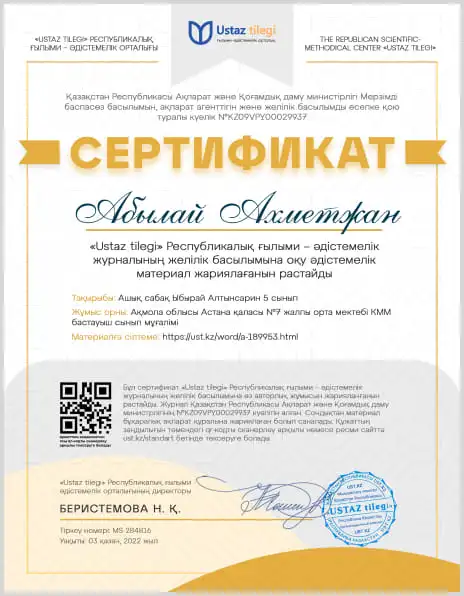
Сіз үшін 400 000 ұстаздардың еңбегі мен тәжірибесін біріктіріп, ең үлкен материалдар базасын жасадық. Төменде пәніңізді белгілеп, керек материалды алып сабағыңызға қолдана аласыз
 Дайын ҚМЖ. Барлық пәндерден 2022-2023 оқу жылына, жаңа бұйрыққа сай жасалған
Дайын ҚМЖ. Барлық пәндерден 2022-2023 оқу жылына, жаңа бұйрыққа сай жасалған





